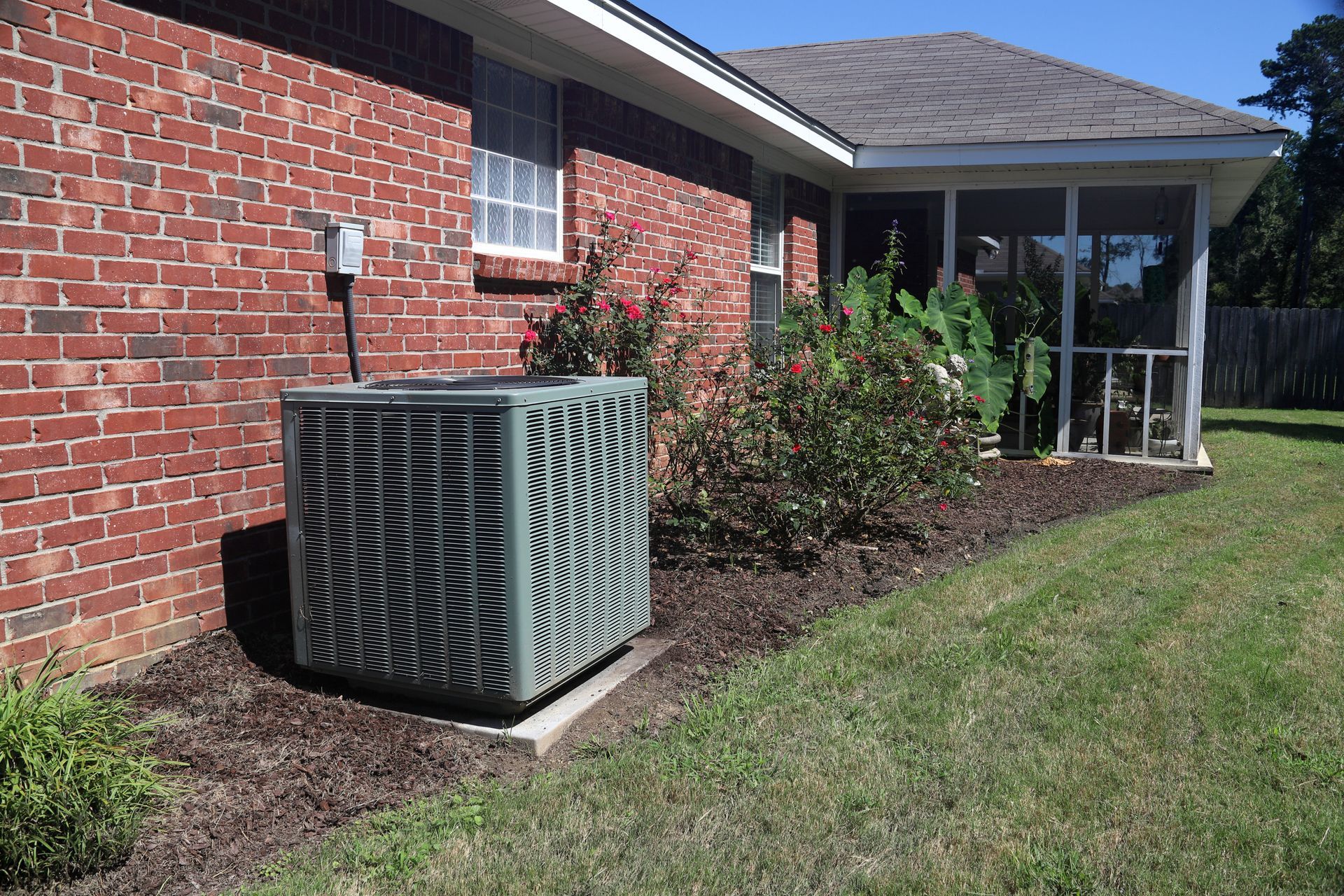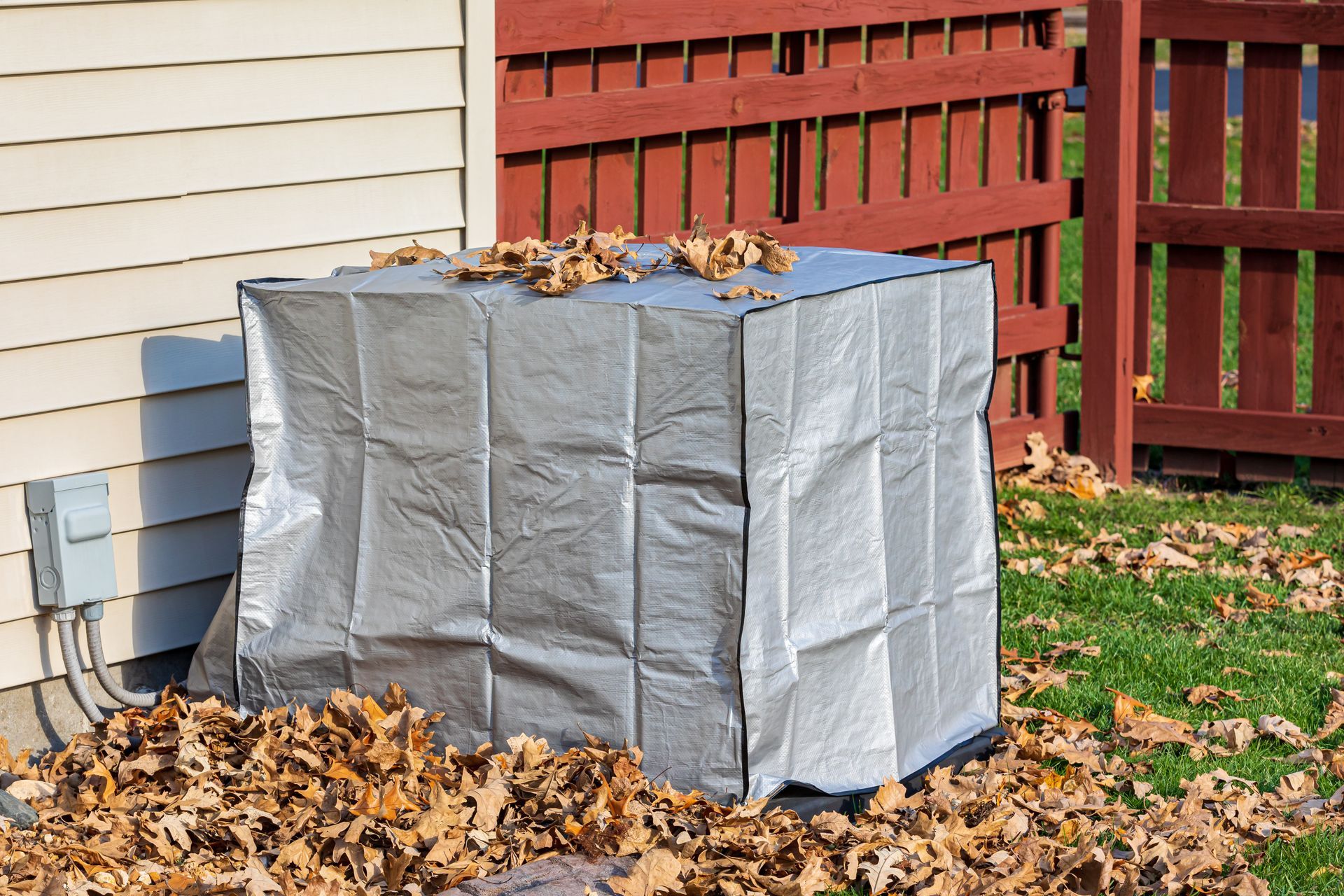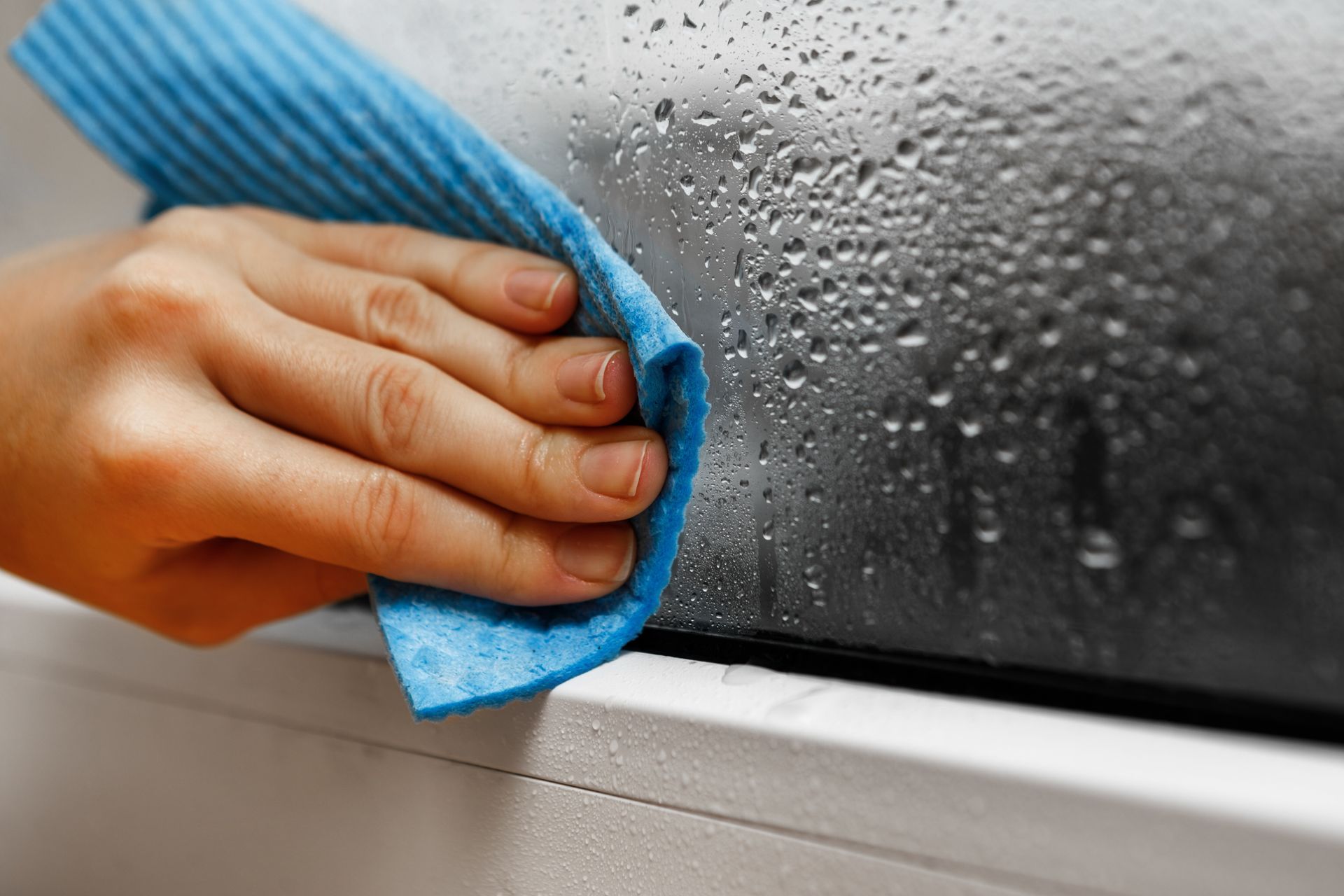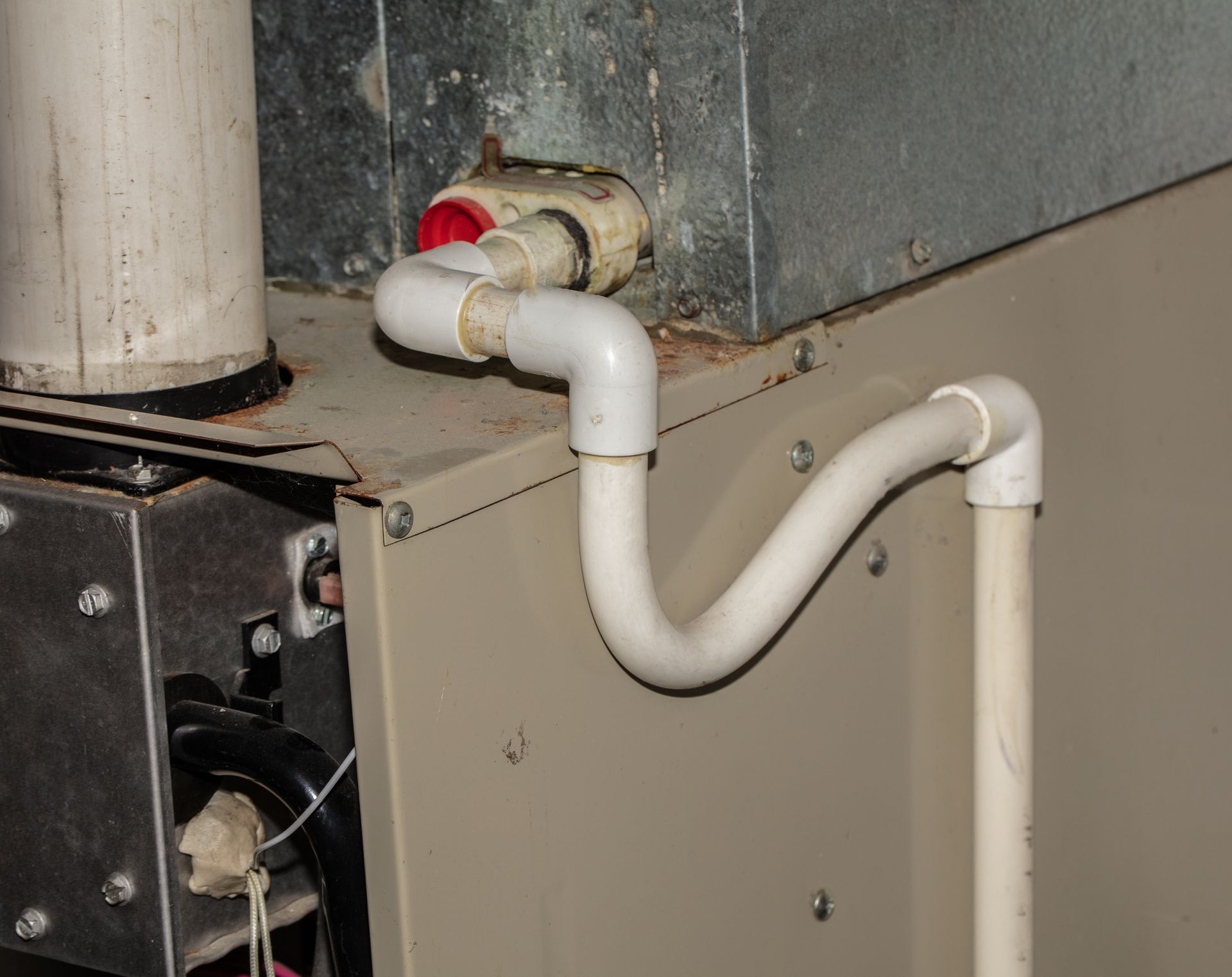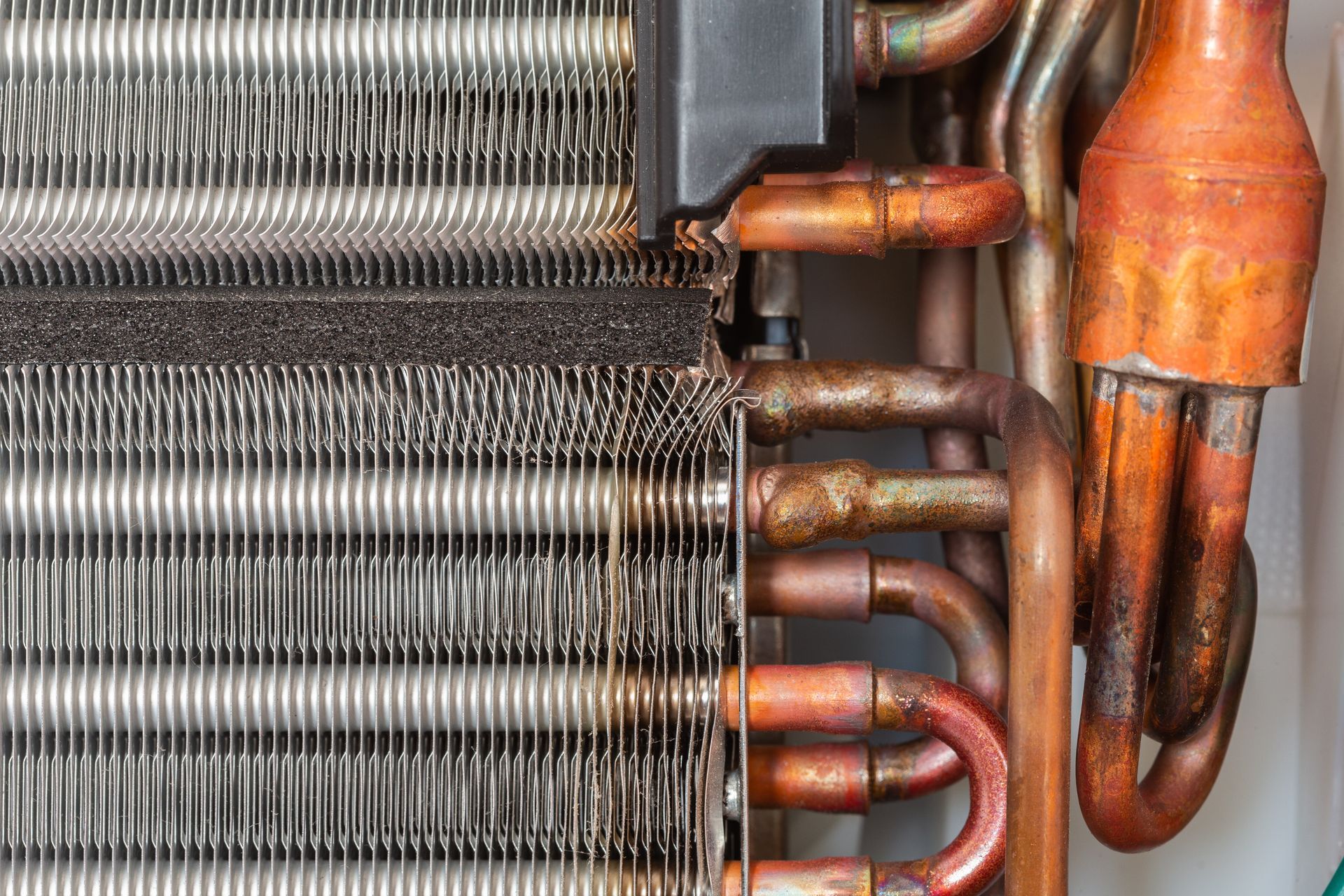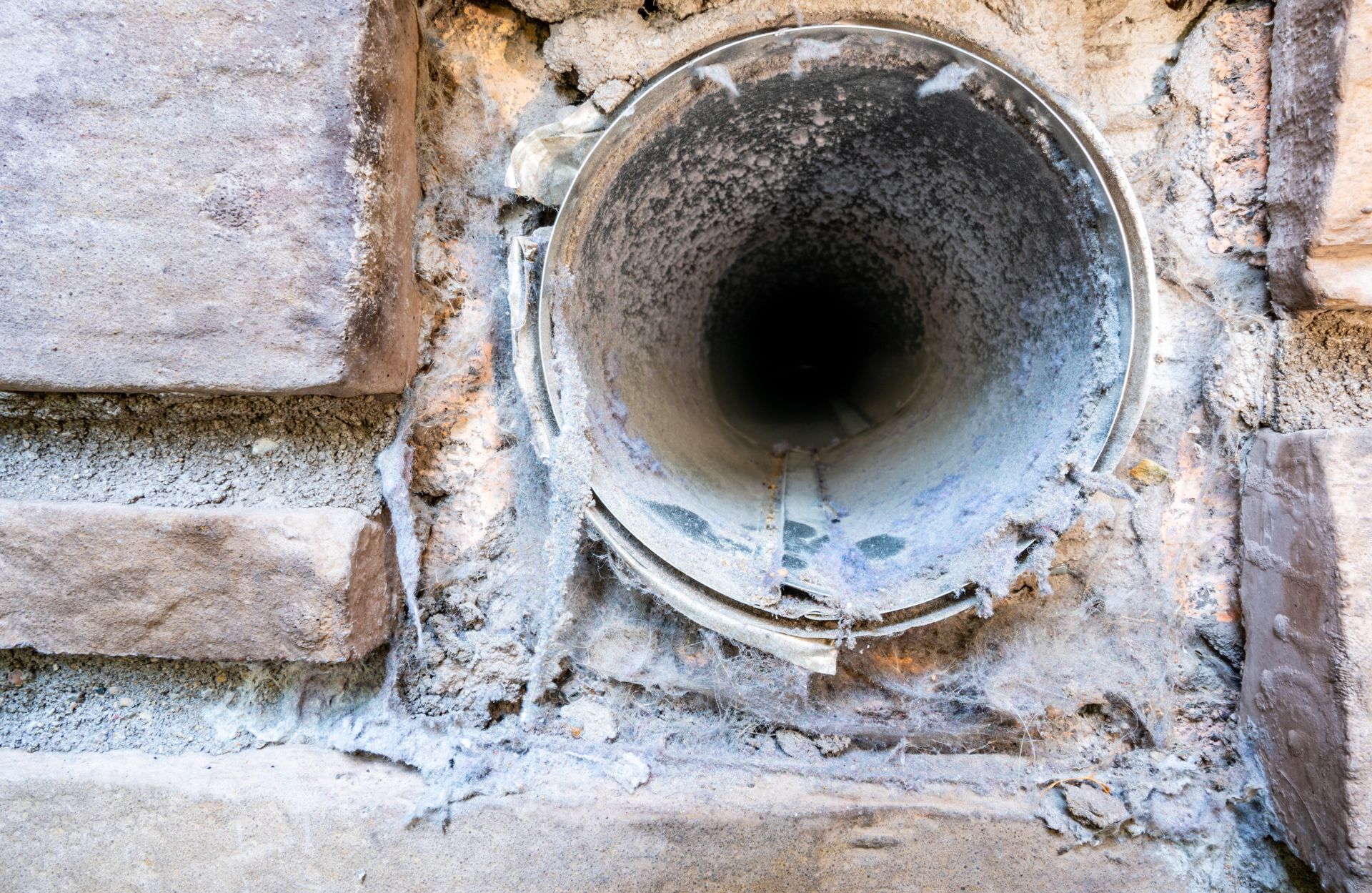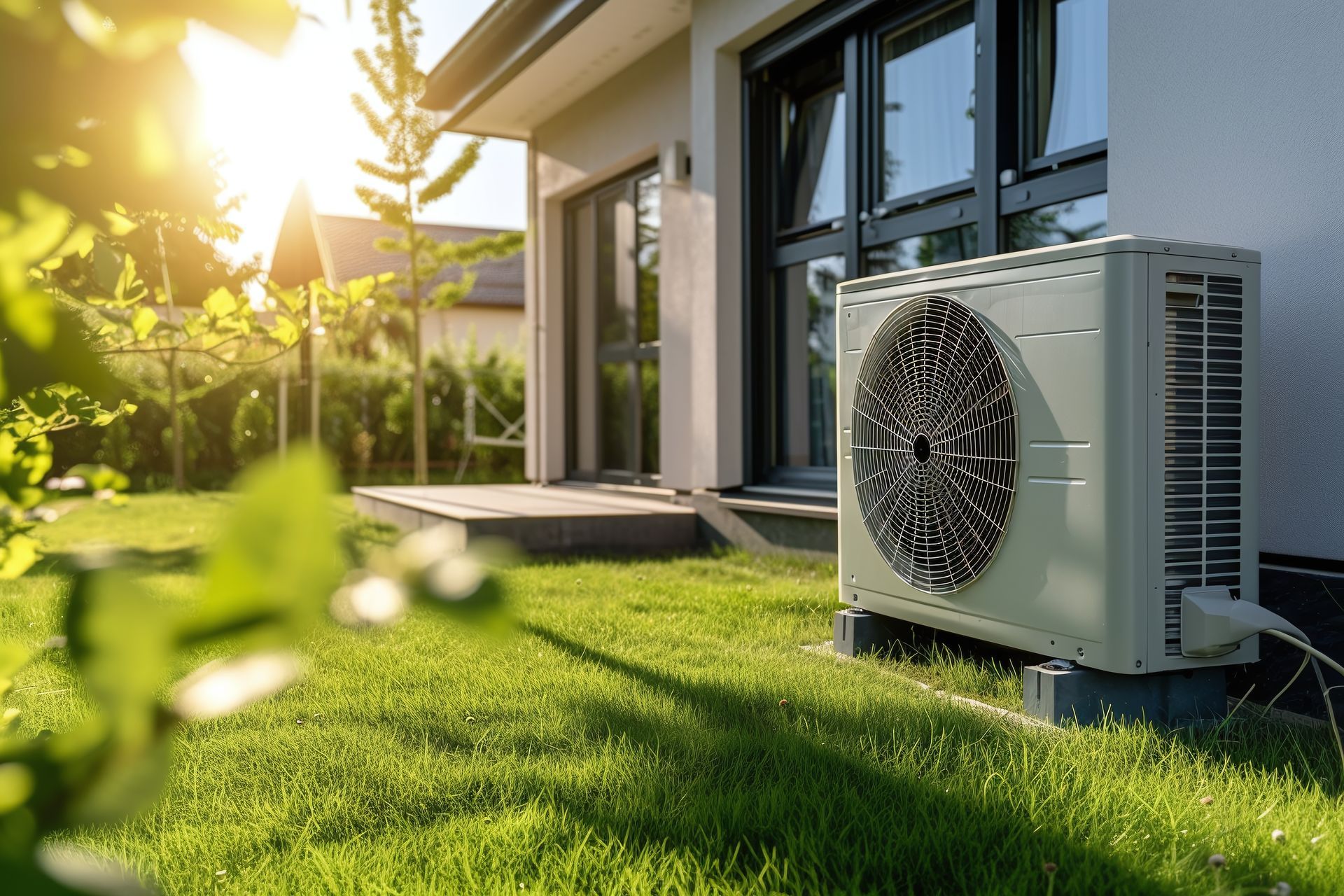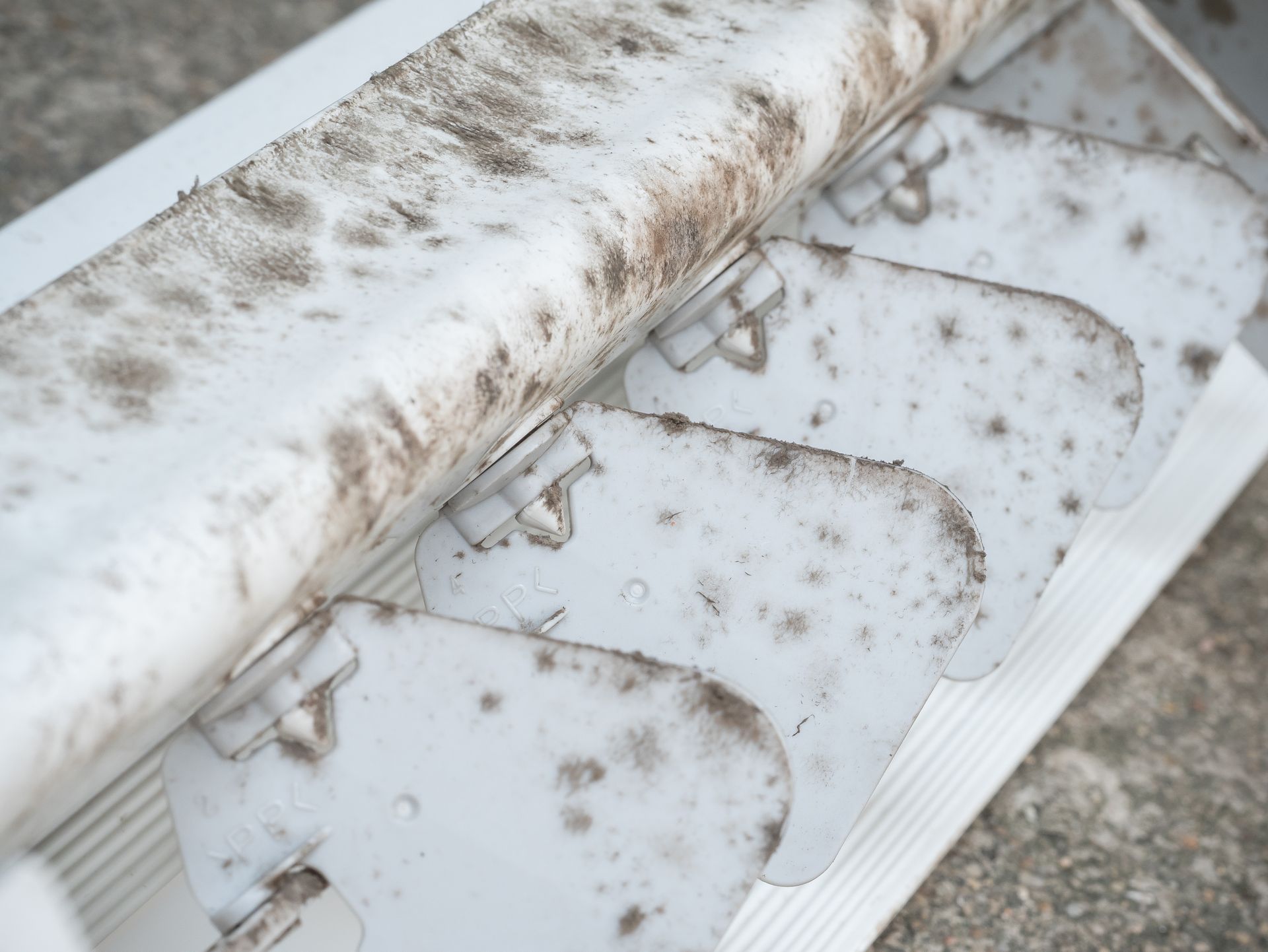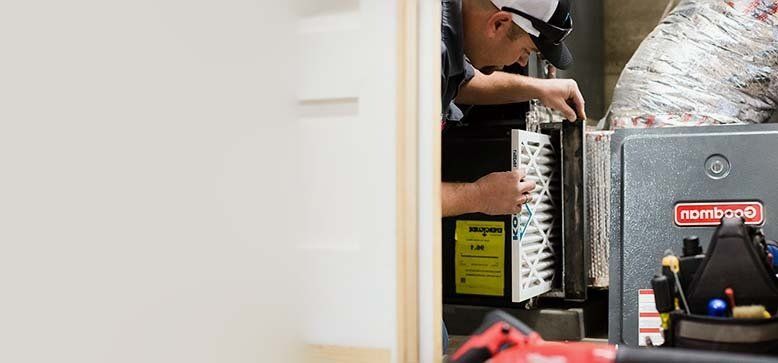Common AC Problems
22 Common Air Conditioner Problems & Solutions
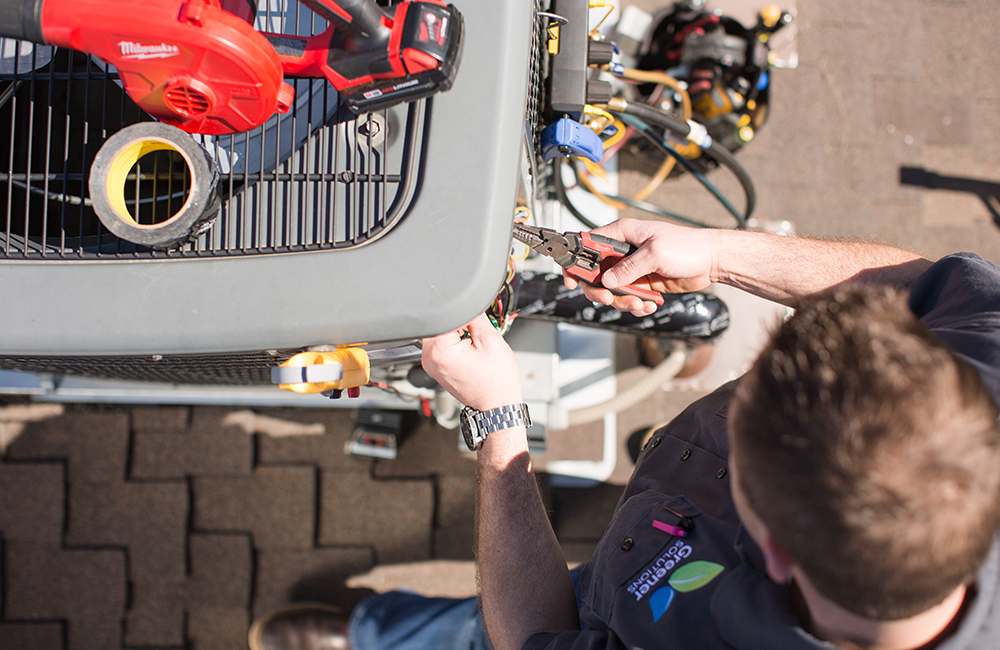
When summer approaches, you do not want to get caught off guard with an air conditioner that is experiencing problems. Air conditioners tend to experience wear and tear over time causing one of several common air conditioner problems that homeowners will inevitably have to address. While it might not be possible for an individual not trained in how to repair HVACs to fix the issue, it is still good to know what may be causing the problem and when to call a professional for help. The following checklist of AC problems should help provide some insight into what may be going wrong with your AC unit.
AC Problem Checklist
List of Services
-
1. AC Running ConstantlyList Item 1
AC units will normally run during hot summer months, but it will typically cycle off when desired temperatures are reached. AC units that do not turn off could indicate a problem with different components which need to be checked. Allowing your air conditioner to run continuously will increase the wear and tear while reducing the lifespan of your unit while causing your electric bill to jump. Be sure to pay attention to your energy usage to determine if your AC unit is running longer than it should.
Cause: This could indicate one of several problems including a faulty thermostat that isn’t registering the ambient temperature of the structure, faulty electrical components, or a compressor problem that is preventing the AC unit from cooling a room properly.
Solution: Diagnosing the correct issue is critical to solving and repairing the problem. Attempt resetting the unit to see if the thermostat will start to work properly, otherwise it may take a professional inspection to identify the problem.
-
2. AC Not Turning OnList Item 2
An AC unit that fails to turn on is another common AC problem that could be the result of any internal component failing. It is good to check to see that the unit is failing by reducing the desired temperature on the thermostat to see if the unit turns on. If the AC doesn’t cycle on at this point, further diagnosis is necessary.
Cause: This could be the result of any of the internal components not working properly. All parts will need to be inspected from fuses, wiring, compressors, and the thermostat.
Solution: The first step is to check the circuit breaker to see if resetting the breaker will cause the unit to turn on. Otherwise, a professional will be needed to come inspect all components individually to identify where the problem exists.
-
3. No Cool Air FlowingList Item 3
If the AC turns on but doesn’t provide cool air or any air at all, this could be indicative of a blockage in some of the internal components. This could be a simple fix like getting a fan belt replaced or refrigerant levels topped off, but it could also prove to be a slightly more difficult fix.
Cause: This could be the result of several different issues which would be difficult to diagnose without a proper inspection of the internal components. Some of these issues could be an easy fix but others may require parts being replaced or repaired.
Solution: Getting a proper inspection and diagnosis is the only way to identify where the problem exists. Once the problem is identified and fixed, this can be prevented with proper AC maintenance.
-
4. Hot Air Blowing OutList Item 4
Your AC unit blowing hot air is literally the worst thing that could happen when you are expecting a cold refreshing breeze. This is usually the result of an internal component overheating which can result in other components failing. When this happens, it is important to shut off the unit and have it looked at.
Cause: Hot air being pushed out could be a sign that your refrigerant is low or that you have a problem with your compressor.
Solution: Having an HVAC professional inspect the different cooling components inside your AC unit to ensure they are all operating properly is critical to ensuring that your unit doesn’t suffer worse damages.
-
5. Refrigerant Leaking
Identifying a refrigerant leak may be hard because it may not show up as fluids leaking from the unit. Often times, a refrigerant leak will cause other symptoms of a failing AC unit like a lack of cold air flow. That said, if there are bright stains around the unit, it is a good sign that the leakage isn’t water escaping. If refrigerant is leaking, this can lead to additional compressor damages which are a costly repair. It also leads to low efficiency and higher power consumption so if you notice a higher electricity bill, it may be time to have your refrigerant levels checked.
Cause: The refrigerant flows through different coils in the AC unit which may have degraded over time or have been cracked.
Solution: Refrigerant leaks will need to be inspected by a professional because the leak will need to be found, repaired, and refrigerant will need to be topped off. In more severe cases, damaged elements, like evaporator coils may need to be replaced.
-
6. Water Leaking Outside
Water leakage outside of your AC unit is expected on a particularly hot or humid day. That said, this can cause other problems like water damage if the water leakage isn’t provided a place to drain. This water leakage can also result in mold or mildew growth which can cause odors.
Cause: Water is usually the result of melting ice from the coils, but the water pooling is the result of a blockage in the condensate pan. This pan is designed to provide a place for the water to drain so backflow usually means that there is a blockage somewhere in the drainage line.
Solution: If the water leakage is presenting a serious problem, then the condensate drain line will likely need to be cleared or replaced. Check to see if there is something that may be causing blockage like a pinched line to see if it can be cleared without professional help.
-
7. Unit Cycling On and Off
This is a common AC problem called short cycling that can result in additional damage to the compressor. This can be caused by a few different things including an improperly sized AC unit that may be too powerful for the size of your home.
Cause: Having an AC unit too powerful for the size of the space its cooling can result in a space being cooled rapidly to the desired temperature and then shutting down, only for the space to heat back up which turns the unit back on. Having this cycling happen repeatedly in a short period of time will cause increased wear and tear.
Solution: This can be difficult to address since the unit is improperly sized. If the unit is older and near the end of its life, it may make sense to look at a replacement AC unit. Otherwise modifying the thermostat may be the best way to alleviate the continual cycling.
-
8. Damaged Compressor
There are several other problems that AC units experience that can eventually lead to a damaged compressor. A damaged compressor can also be the culprit behind many of the other problems that an AC unit may experience. This component is one of the primary elements within the AC unit so ensuring that it is functioning optimally is integral to the health of your AC unit.
Cause: Typically, problems with the compressor start with refrigerant level issues or blockage in the condenser coils.
Solution: Having a professional HVAC technician inspect your compressor is the only way to have the problem properly diagnose and repaired or replaced.
-
9. Condenser Coil Freezing
Seeing water around your unit usually means that there is ice build up around the AC condenser coils. This usually indicates that your unit is working much harder than it needs to which can cause overheating in other elements.
Cause: This can be the result of condenser issues or dirty air filters that cause the coils to get dirty which make them work harder than they need to in order to properly function.
Solution: A quick fix would be to let the ice melt of the coils, but this typically doesn’t address the underlying issue that is causing frozen coils. It is important to not chip the ice away to prevent cracks or breaks in the coils which would cause a refrigerant leak. If the compressor coils continue to freeze, it is important to have them looked at by a professional.
-
10. Evaporator Coil Freezing
Evaporator coils tend to freeze when there is something obstructing the air flow around these coils. Frozen evaporator coils can lead to your unit freezing up which can shut the entire unit down.
Cause: Air blockage that causes frozen evaporator coils can be the result of dirty air filters, buildup on the coils, blocked vents, or a broken fan.
Solution: Identifying what is causing poor air flow to the coils is the first step in addressing the problem. Without knowing what component isn’t working properly, you can’t repair the problem. The first step would be to replace the air filters if they are dirty but having a professional inspect the different internal components will ensure the problem is fixed.
-
11. AC Tripping Circuit Breaker
If your AC unit continues to trip your breaker there is something wrong that is causing a power surge. This issue is frustrating when it happens continually because it typically means that there is an underlying electrical problem.
Cause: This could be the result of a few different problems including improper installation and faulty or damaged electrical components that are causing short circuits.
Solution: Having a professional come out and inspect the installation is probably the first step in diagnosing this problem. Next would be to check each of the electrical components for any faulty circuity and then the wiring to ensure that all connections are in place and secure using the proper sized wiring.
-
12. Strange Smells Coming from AC Unit
Different odors coming from your AC unit can indicate different problems. Musty or mildew smells can indicate that moisture buildup while the smell of something burning indicates a much more serious problem.
Cause: The smell of burning can be the result of electrical components causing a short circuit, internal components overheating, or motors burning out. Musty smells can indicate mold growth caused by leaking water. A strong pungent sulfur smell can be the result of a small animal that has died in the ductwork.
Solution: In the event of odd odors being produced from your AC unit, it is best to turn the unit off while the problem is identified. This is especially true if it smells like something is burning. Have a professional identify the source of the smell and have them clean or replace the elements that are causing the odor.
-
13. Strange Sounds Coming from AC
Strange sounds usually indicate that something has come loose or has broken and is rarely a good sign. If your AC unit is rattling, squealing, hissing, buzzing, or grinding something is wrong and your unit needs to be inspected.
Cause: Squealing is usually caused by a loose fan belt that may be worn down. Hissing sounds could be the sound of a refrigerant leak. Grinding usually indicates that there is a motor problem. Buzzing could be the result of faulty electrical components which can also cause your unit to click on and off. Rattling or knocking can indicate a problem with the motor assembly or fan.
Solution: Each of these problems will require a professional HVAC technician to come inspect the noise to determine the right solution to ensure that your AC unit functions properly.
-
14. Electric Control Failure
The electrical components of your AC unit are prone to wear and tear just like the mechanical components. After cycling on and off over an extended period of time, the electrical connections and the electrical control panel can wear out causing a disruption in the power supply or surges that result in electrical failure.
Cause: The failure of electrical components can be caused by general wear and tear as well as corrosion of wires, terminals, and connections.
Solution: Diagnosing where electrical problems are occurring requires checking each of the electrical components and connections.
-
15. Thermostat Sensor Problems
The thermostat includes a sensor that registers ambient temperature, so the AC unit knows when to turn on and off. If the sensor is faulty or positioned poorly, then the AC unit will fail to deliver cool air when it needs to.
Cause: The sensor is attached to the AC unit near the evaporator coils. The sensor can become displaced due to movement or sometime fail simply from wear and tear.
Solution: If the sensor has shifted from its intended location, it can usually be moved back. If the sensor has failed to measure temperature properly, it will need to be replaced by a trained AC technician.
-
16. Faulty Thermostat
In addition, to thermostat sensor problems, a faulty thermostat could also by impacting your AC unit. Thermostat problems can vary in severity, and it is important to have them calibrated during regular maintenance to ensure that they are working optimally.
Cause: The reason behind thermostat problems can be as simply as having dead batteries or as serious as damaged electrical board. Having the thermostat diagnosed by a professional is recommended so you can determine what the problem may be.
Solution: A professional will help calibrate your thermostat and replace any dead or dying batteries to ensure that it is operating correctly. If these solutions do not help improve the thermostat, then they will help replace it to ensure that your AC unit functions as expected.
-
17. Dirty AC Filter
The air filter that cleans particulates from the airflow will become dirty over an extended period of time. As the filter becomes increasingly dirty, the harder the AC unit has to work, which decreases efficiency. Restricted airflow will also impact the machine’s ability to work effectively.
Cause: Air that is drawn in from the home by the blower fan will contain dust, pollen, pollutants, pet hair, and other particulates that will collect on the air filter over time.
Solution: This is one of the few problems that can easily be solved by homeowners. Check the air filters regularly to ensure that they are clean. It is recommended that homeowners clean AC filters every few weeks and then replace them every other month during peak usage.
-
18. Capacitor Failure
The capacitor plays an important role when an AC unit tries to turn on. This electrical component helps provide enough energy for the AC unit motor to turn over. Often times, when a capacitor problem occurs, a clicking sound will be heard when the AC unit tries to turn on.
Cause: Capacitor problems can be the result of several power issues. The capacitor itself may be overheated by the unit cycling on and off. It can also be cause by power surges and frequent thermostat changes that may force the capacitor to work harder than it needs to.
Solution: Capacitor problems will need to be diagnosed by a professional who can either repair or replace the capacitor on the AC unit.
-
19. Leaking Ducts
AC ductwork carries the air from the unit into your home where you need it. If there are leaking ducts, then it could be dispersing cool air into dead spaces which has a significant impact on how effective your AC unit is. It also increases the potential for the air quality to be impacted by pollutants that were introduced by the duct leak.
Cause: Tears in ductwork can be caused by irregular or frequent moving of the ductwork. There can also be openings at points where ductwork in joined. Other leaks may be caused by wild animals who have managed to get into the ductwork.
Solution: Ductwork will need to be inspected by a professional who can find and repair the holes in the ducting. Smaller tears and holes can be fixed with tape or sealants, but severe duct damage will need to be replaced.
-
20. AC Fan Failure
The exterior systems in an AC unit are responsible for effective heat transfer. The heat is blown away by the exterior fan so if the fan fails, the process of heat transfer is greatly impacted. This can cause other elements of the AC unit to work harder which can eventually lead to other problems like compressor damage.
Cause: The AC fan can fail if the motor goes out or one of the electrical components is faulty. This could be due to a connection problem with some of the wiring or faulty circuit board which would need to be looked at by a professional.
Solution: The AC unit should be powered down for safety since we want to avoid the fan blade powering on during inspection. It is recommended that a professional check the interior components of the fan motor and control board to ensure both elements function as expected. Whichever element is faulty will need to be replaced or repaired by a professional.
-
21. Bad Wiring or Wrong Fuse
With all of the electrical components that are needed to operate your AC unit, there is always a chance that there could be a faulty connection somewhere in the system. This could lead to no power or a power surge which could cause a blown fuse.
Cause: Bad wiring can be the result of a loose connection, exposed wiring, and faulty wiring. Each of these problems are potential fire hazards that need to be checked by a professional.
Solution: Have a professional HVAC technician check all of the wiring and connections to ensure that the electrical components are all receiving power and that they are all operating as expected. Faulty or exposed wiring will need to be replaced to ensure that power is not interrupted.
-
22. Uneven Air Distribution
Poor air distribution can cause only a few of the rooms to reach the desired temperature while others are left hotter than desired.
Cause: This could be the result of a non-related problem like room size or window placement, while it could also be caused by duct leaks.
Solution: If the problem is the result of a specific room being too exposed to natural lighting, curtains can be used to block out the sunlight. Duct leaks on the other hand will require some repairs to ensure that air flow is able to reach the desired room.
Contact Professionals to Help Inspect and Diagnose AC Problems
If your AC unit is dealing with any of the problems identified in the list above, it is time to enlist the help of the trained professionals at Greener Solutions Home Services. Our team of licensed and experienced HVAC specialists will be able to diagnose your AC problem and identify a solution that will get your air conditioner up and running optimally. Our trained technicians can evaluate the problem and determine if AC repair or a brand-new AC installation is the best solution. Don’t ignore any indicators of AC problems because the damages will typically get worse over time as additional strain is placed on other elements for the AC unit to produce cold air. Call today to schedule an inspection or routine AC maintenance.

